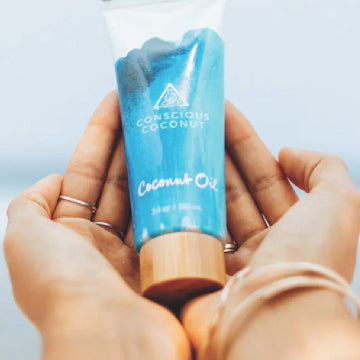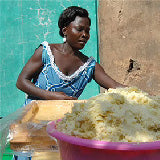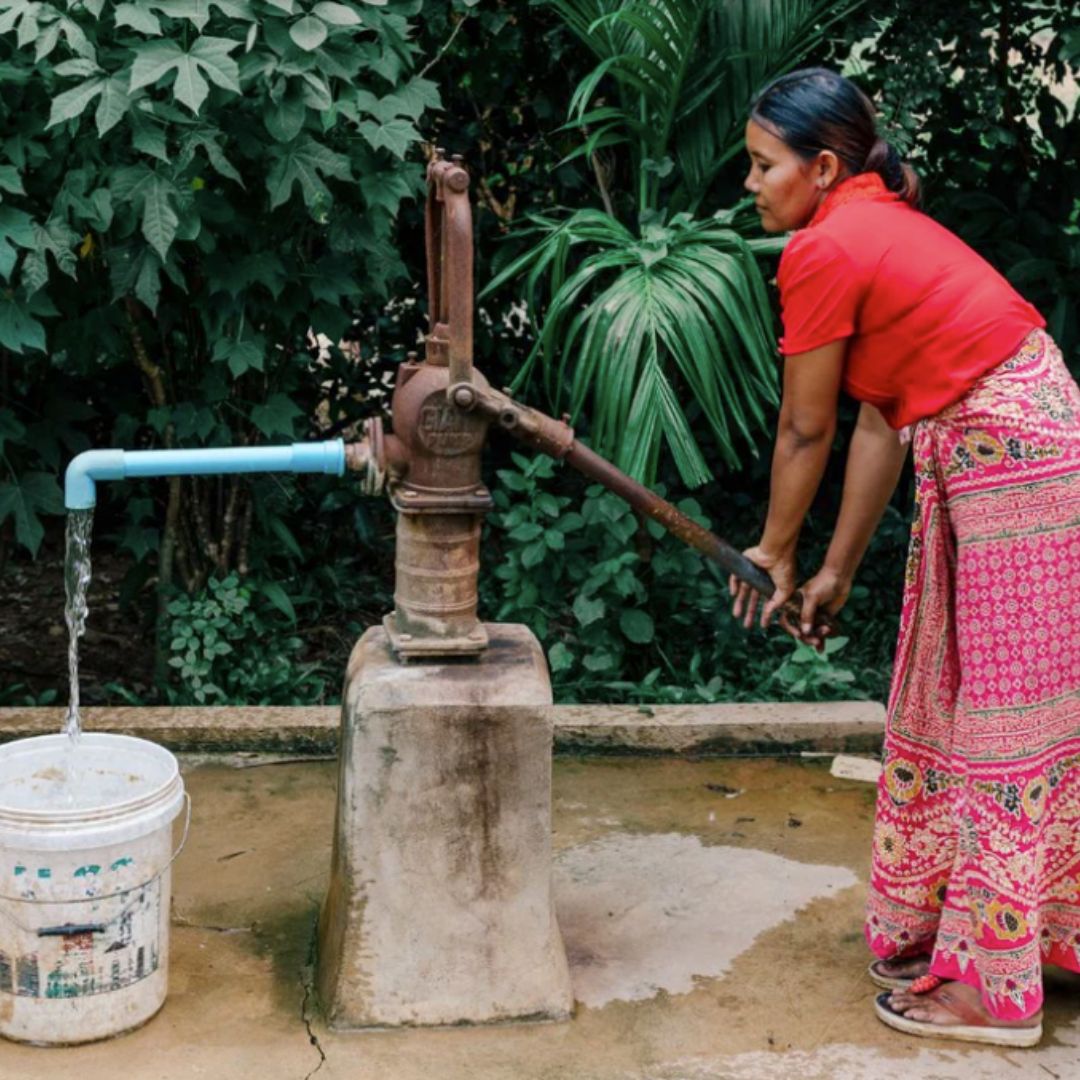From National Geographic to Parrotfish: Plastic-Free Beauty for All
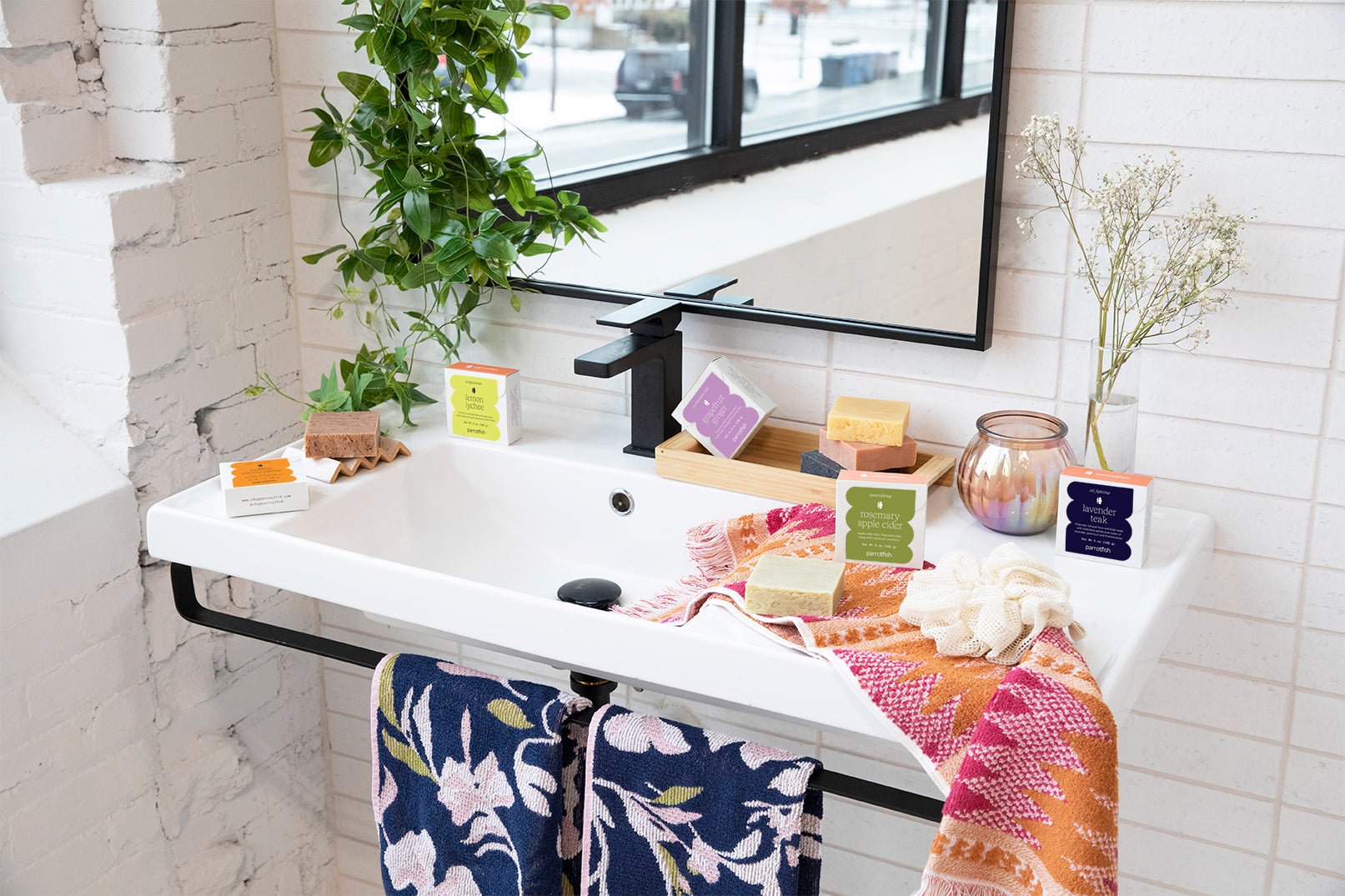
Luxurious bath and body products mixed with affordable prices and plastic-free packaging make up the unique mission-driven brand Parrotfish. Created by Katie Pearson Fucci, who credits her passion for an eco-friendly lifestyle stemming from her time working at National Geographic.
Parrotfish was born when Katie grew dissatisfied with the existing plastic-free personal care products available. Taking matters into her own hands. Katie developed Parrotfish by seamlessly integrating her passion for artistry, environmental consciousness, clean ingredients, and self-care into a unique and meaningful experience for others.
Cleanhub reports that the beauty industry contributes an average of 120 billion pieces of packaging each year and that 95% of cosmetic packaging is thrown away left to pollute the ocean, harm wildlife, contribute to deforestation, and impacting climate change.
Sustainability is the core of Parrotfish's brand identity, with Katie investing her passion into every aspect – from carefully selected ingredients to the artistic presentation of each product. The brand’s mission is centered on minimizing environmental impact and making a positive contribution to the planet. By eliminating plastic packaging and harmful ingredients, Parrotfish actively strives to reduce plastic pollution, preserve biodiversity, and address deforestation. And they’re doing it with luxurious and affordable products you will fall in love with.
We’ve had a chat with Katie to know more about Parrotfish and dive into how the beauty industry is constantly evolving to benefit the world and our customers. Have a read!

How did Parrotfish come into existence?
I worked as a graphic designer at National Geographic and learned about the extent of plastic pollution by working on their "Planet or Plastic" campaign. While I was already passionate about outdoor activities like rock climbing and backpacking, after working on that campaign, I wanted to try eliminating plastic from my home, starting with the bathroom. When I struggled to find a shampoo and conditioner bar that worked for my hair, the idea for Parrotfish came about. But balancing a full-time role at Nat Geo with night classes in grad school left me with little time to build the company I envisioned, so I did things a little backward; I did what came easiest for me first and leveraged my graphic design skills to create a website and brand identity before even having a product. The product came next through trial and error in my sister-in-law's kitchen, sending bars to anybody who would review them. After gathering feedback at farmers' markets, craft fairs, and friends, I took the recipes to a manufacturer I found an hour from where I lived. Parrotfish was officially incorporated in December 2021, after I was no longer in school, and I quit my job in November 2022 to work on Parrotfish full-time.
How does Parrotfish meet the world of ethical beauty? What are the brand's principles?
When initially seeking plastic-free personal care products, I, as a consumer, encountered a dilemma—feeling compelled to choose between sustainability and performance. I dealt with oily hair worsened by-products that stripped my natural oils, so when I tried transitioning to an all-natural, sulfate-free bar, the adjustment period left my hair overly oily. With a busy schedule, I couldn't afford the time for a lengthy transition, thus recognizing the need for a product that seamlessly transitioned from liquid to bar. I prioritized both performance and ease of adoption to encourage widespread use and lessen environmental impact. We use Sodium Coco-Sulfate to create a rich later to achieve a seamless transition. This ingredient is derived from coconuts, ensuring milder and safer cleansing than petroleum-based alternatives like Ammonium Lauryl Sulfate or Sodium Laureth Sulfate. Endorsed by the Environmental Working Group (EWG) with a top safety rating of "1" for surfactants, Sodium Coco-Sulfate offers effective dirt and grease removal while being gentle on colored hair. Beyond functionality, my criteria included easily recyclable packaging suitable for regular curbside recycling and environmentally friendly ingredients.
The brand's principles are...
1 Plastic-Free Packaging: We prioritize using recycled and recyclable materials in our packaging and have eliminated plastic packaging from our product line. Instead, we use eco-friendly alternatives such as recycled paper, paper tape, cardboard, and plant-based materials to create functional and environmentally responsible packaging. We source packaging materials from post-consumer waste that our customers can easily recycle after use. Whenever feasible, we opt for packaging materials that are compostable or biodegradable, ensuring that our packaging breaks down naturally and reduces its impact on landfills and the environment.
2 Clean Ingredients: Our soap's olive oil base is enriched with shea butter and sweet almond oil for a rich, gentle, nourishing care and conditioning lather, leaving your skin soft and hydrated. Out captivating scents like lavender, grapefruit, and bergamot stem from essential oils for skin benefits and sensory delight. Our soaps are also colored naturally with spinach powder, rose clay, and activated charcoal.
3 Ethical Manufacturing: We prioritize sourcing eco-friendly, ethical, and sustainable materials. This includes selecting ingredients and raw materials responsibly harvested or obtained from renewable sources. We prioritize suppliers who share our commitment to environmental responsibility. We also work with manufacturing partners who demonstrate commitment to sustainability and responsible production. We ensure our products are palm-oil-free, as palm oil production often leads to deforestation and habitat destruction.
What are your favorite Parrotfish products?
Whenever I travel, I bring 4 bars - my Argan Shampoo Bar, Argan Conditioner Bar, Coffee Clementine Exfoliant and Rosemary Apple Cider Soap.
I start with my Argan Shampoo Bar, and after shampooing, I rub the Argan conditioner bar on my hair and use a wide-tooth comb to distribute the product. I love to comb my hair (whether it be solid or liquid conditioner) while I'm in the shower to detangle my strands.


Before using one of Parrotfish's soaps to clean my body, I will always lightly exfoliate using our Coffee Clementine Exfoliant. I'm prone to acne and inflammation under my armpits (where my sports bra sits) and on my bottom. Exfoliating these areas helps remove dead skin cells and dirt that could contribute to clogged follicles from sweat after a workout. My Coffee Clementine Exfoliant is one of the bars I can't be without.
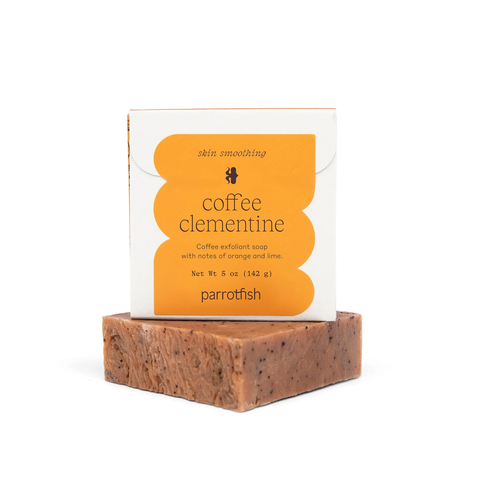
Lastly, I will wash my face and body with my Rosemary Apple Cider Soap Bar (it's my husband's favorite, so it's always in our shower!). Our soaps are extra moisturizing with ingredients such as olive oil, coconut oil, and shea butter – so using one of these bars after exfoliating will help nourish your skin.
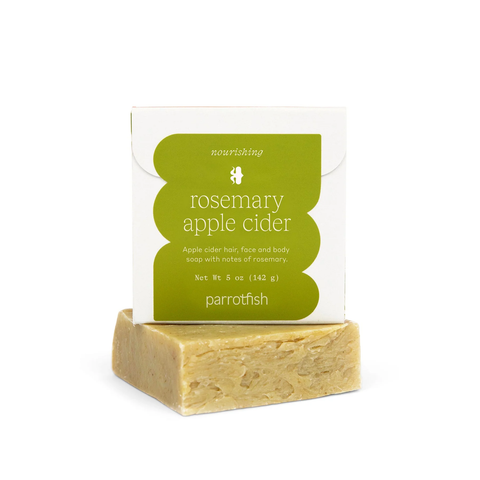
How do you think beauty brands can raise awareness on sustainability most effectively nowadays?
Parrotfish was created to broaden consumer options in sustainable beauty and personal care, and in the early days of founding Parrotfish, many people I spoke with were unfamiliar with shampoo bars; today, people are aware of and actively using them! While my bars suit me and my customers flawlessly, I'm intrigued by the diverse brands others enjoy and the reasons behind their choices. If a customer reaches out with a less-than-optimal experience, I gladly recommend alternatives that suit them better. In the diverse landscape of bodies and preferences, having various sustainable brands increases the chances of finding the perfect fit. Additionally, I love how the beauty industry is circling back to basics, embracing common ingredients and returning to bar forms, from shampoo to lotion. Interestingly, many water-free beauty bars aren't a new concept but a return to an old practice we are embracing once again.
With the growing curiosity about water-free bars, it's easier to pique people's interest. However, when the barrier to buying is price, I highlight to customers that condensing shampoo into bar form can replace up to three liquid shampoo bottles, as the bottle is typically around 80% water. If the concern is fear of change, I emphasize the incredible benefits of ingredients like argan oil or cocoa butter, not just for the environment but also for healthier, nourished hair.
The evolving expectation for businesses to embrace sustainability is a positive shift, and I'm eager to witness its ongoing enhancement. While top-down change is crucial, consumer purchasing power plays a pivotal role, and the days of companies merely slapping a recycling logo on a plastic bottle are no longer sufficient. Moreover, as consumers become more perceptive when companies engage in greenwashing, they find themselves exposed. Maintaining transparency is essential for building trust.











